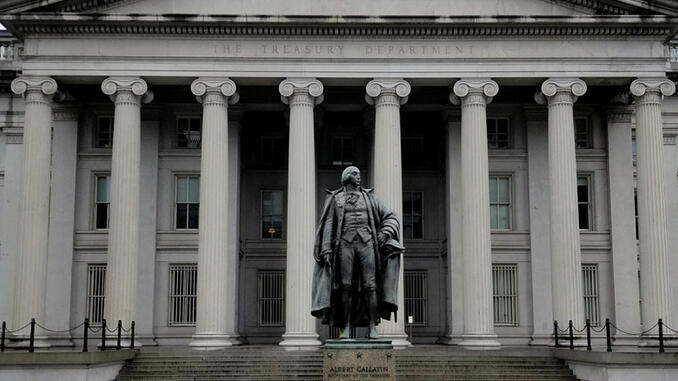
America’s national debt is a ticking time tomb that both Republicans and Democrats are refusing to address. The Congressional Budget Office (C.B.O.) said in a report released last month that the ratio of federal debt to gross domestic product (G.D.P.) will reach 78 percent by the end of this year making it the highest ratio since 1950. According to the C.B.O. the debt is projected to rise to 96 percent of G.D.P. by 2028 or nearly the entire size of the U.S. economy.
“At 78 percent of gross domestic product, federal debt held by the public is now at its highest level since shortly after World War II,” the C.B.O. said in its report. “If current laws generally remained unchanged, the Congressional Budget Office projects, growing budget deficits would boost that debt sharply over the next 30 years; it would approach 100 percent of G.D.P. by the end of the next decade and 152 percent by 2048. That amount would be the highest in the nation’s history by far.”
The C.B.O. report says interest on the debt, combined with increased spending on healthcare programs and Social Security are the main drivers of U.S. spending. As those items take up more of the budget, it squeezes discretionary spending. There is also the risk that those who are lending to the U.S., most of who are foreign, could begin to lose confidence and demand higher interest rates. This could trigger a fiscal crises.
The last time the U.S. took serious action handling its spending was during the Clinton era when with a surging economy and fiscal discipline the budget ran surpluses in 1999, 2000, and 2001. However, since then the national debt has massively increased. Currently the U.S. national debt is the astronomical figure of more than $21 trillion.
A then candidate Donald Trump had flippantly promised in April of 2017 that he would eliminate the national debt “over a period of eight years” in an interview with the Washington Post. That promise was not taken seriously, and his administration’s push for tax cuts combined with increased spending by a Congress controlled by the President’s own party have drastically driven up the debt even more. During the Obama administration Republicans railed against the Democrats for doubling the national debt from $10.6 trillion to $19.9 trillion.
Real progress on tackling the national debt will take drastic and unpopular measures. The longer elected officials put off tackling the debt, the more onerous the measures have to be. Last month’s C.B.O. report wasn’t the first time Americans have been warned about their spending. American politicians know what they have to do to get spending under control, but, alas, they are sound asleep at the wheel with disaster looming in the distance.
